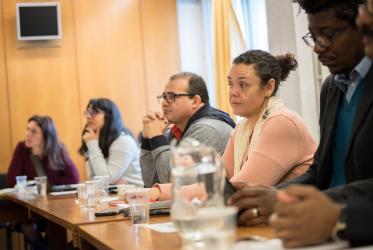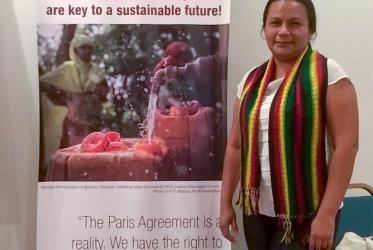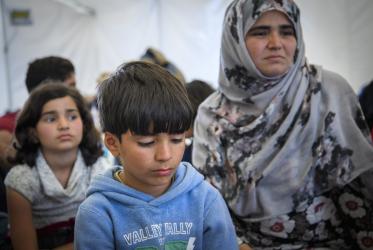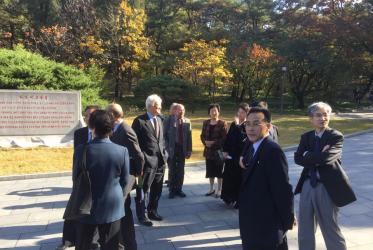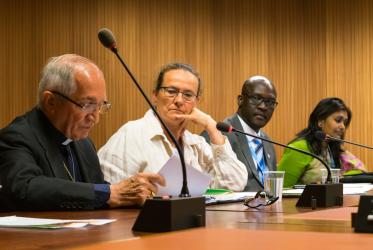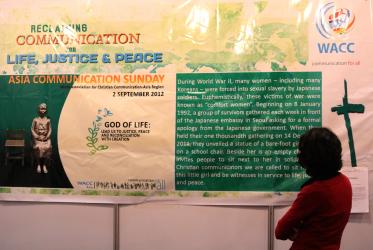Displaying 61 - 80 of 80
26 April 2017
During Lent, a “carbon fast” can honour God’s creation
09 February 2017
WCC Executive Committee issues statement on climate justice
25 November 2016
New guide on climate justice and water released
01 September 2016
New video presents Ecumenical Advocacy Alliance’s call to action
13 January 2016
Consultation considers right to food in context of climate change
15 December 2015
Land rights focus of panel discussion
17 November 2015
Hearing many voices for justice and peace
07 November 2013
